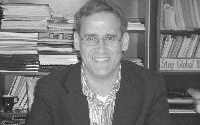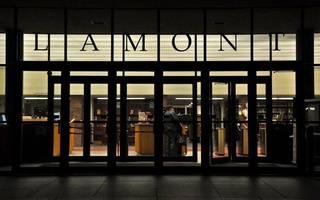Students’ learning does not correlate with the education level or experience of their teachers, Graduate School of Education professor Thomas J. Kane said Thursday in a panel discussion at the School of Education. Nevertheless, current systems of teacher evaluation focus almost exclusively on those two factors, according to Kane.
Instead, Kane recommended a system which would utilize students’ evaluations of teachers, students’ standardized test scores, and professional evaluations of videotaped lessons as alternative ways to judge and reward teachers.
Kane published a study earlier this month that found student evaluations of teachers were the most consistent measure of teacher effectiveness.
Another important measure is the value-added statistic, a metric that compares students’ standardized test scores before and after one year in the teacher’s classroom.
The study found that an average student with a teacher in the 25th percentile ends the year almost a full school year behind a peer with a teacher in the 75th percentile.
“The [study] is one of the most important education studies that’s ever been conducted,” said School of Education Dean Kathleen McCartney, who offered the introductory remarks.
However, Kane said his recommended methods have been met with criticism.
“The question we should be asking is, ‘Is the predictive power of this better than the information we’re acting on now?’” he said. “Don’t make perfect the enemy of good.”
Mitchell D. Chester, the Massachusetts Commissioner of Elementary and Secondary Education, joined Kane on the panel at the School of Education on Thursday.
Chester said he has incorporated elements of Kane’s study in a new teacher evaluation system.
He said that in 25 districts across the state, including in under-performing schools of Massachusetts’ biggest cities, schools have begun implementing the new system.
Speaking about the New England Patriots quarterback, Kane said, “Tom Brady is going to spend four to six hours every day between now and a week from Sunday watching himself on video tape and thinking about each decision that he made.”
He continued, “We don’t do any of that with teachers. It’s crazy.”
—Staff writer Maya S. Jonas-Silver can be reached at mayajonas-silver@college.harvard.edu.
Read more in News
Volunteers Conduct Homeless CensusRecommended Articles
-
 Happy Study Card Day: The Barry Kane Edition
Happy Study Card Day: The Barry Kane Edition -
A Temporary ReliefAsk any event planner at the Harvard School of Public Health for a room, and he or she will recommend Kresge 502.
-
Registrar Barry Kane To Leave for WellesleyBarry S. Kane, the Faculty of Arts and Sciences Registrar noted for overhauling and modernizing his division during his seven-year tenure, will step down on July 16 and move to Wellesley College to head the Registrar’s Office and assume an assistant deanship there, Dean of the College Evelynn M. Hammonds announced in an e-mailed statement on Tuesday.
-
 Is There Something Fishy Afoot?
Is There Something Fishy Afoot? -
Burke to Take Over as FAS RegistrarHarvard Kennedy School Registrar and Director of Admissions Michael P. Burke will take over as the new Registrar for the Faculty of Arts and Sciences, Dean of the College Evelyn M. Hammonds announced in an e-mail Monday afternoon.
-
 Library Closings
Library Closings













